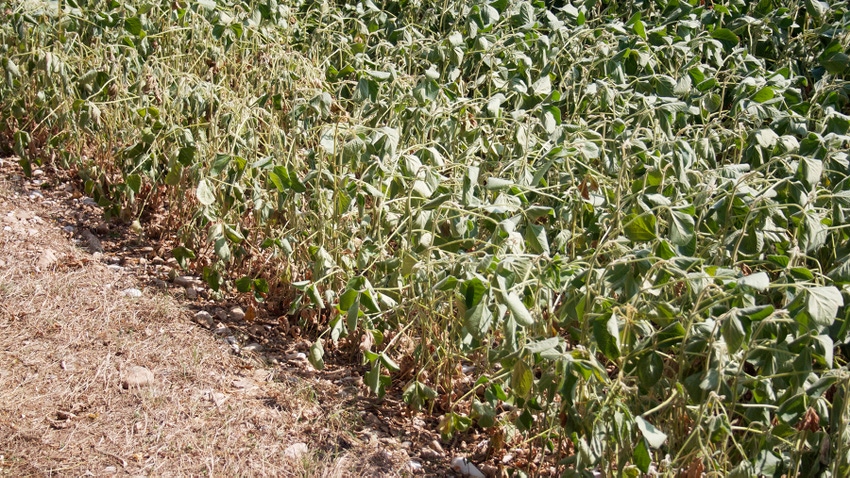
Climatologist and Mississippi State University Professor of Meteorology Mike Brown said he’s never wished for a tropical storm in the Magnolia State — until this year when the drought, in recent months and weeks, became so severe he thought rain from a tropical system might be beneficial enough to outweigh storm risks.
The ground has gotten so dry over the past months of drought, Brown said, that even a wet winter may not be enough to fully replenish depleted groundwater. The drought, which began in late July, is the driest the state has experienced since drought monitoring began over 20 years ago and is about a once-in-50-years scenario, Brown said.
With Southwest Mississippi the hardest hit, the worst of the drought extends primarily from Jackson southwest, where the lack of rain and record high late summer temperatures caused rapid deterioration of crops like soybeans and cotton.
Although agricultural crops in the Delta fared well this year, Brown said rain is critically needed in large, “catch-up” amounts across the South to avoid a worsening outlook next spring.
He said beyond the dried, hardened ground, impacts of the drought are creating secondary impacts, such as cattle farmers selling their herds due to hay shortages and barges on the Mississippi River lessening their loads just to float.
Best hope
Fortunately, he explained the El Niño weather pattern forecasted for this winter offers the South the best hope of providing badly needed precipitation.
“We are still in a serious drought, but rain last week across much of Mississippi has helped, and the forecast looks fairly promising for a couple of rain events soon, especially in the South and Southwest part of the state which needs it more than any other location,” Brown said.
From his office at Mississippi State, Brown monitors the drought and updates other weather conditions through his role as state climatologist.
He keeps data logged daily at https://www.ms-sco.us/. He also works closely with the MSU Extension Service, keeping two-way communication lines open to receive from and provide information to the state’s 82 counties. He explained how receiving photographs of drought conditions from farmers and other residents around the state helps him understand and convey accurate information.
“I can look at my computer and see the meteorological and hydrological conditions to understand the drought and make a pretty good guess about the impacts, but a picture is worth a thousand words. That’s so helpful to me to be able to pass that information along and try to get those counties classified properly,” Brown explained. “It’s very important that we get the drought classifications right for these farmers, who can qualify for certain programs that may help offset losses.”
Undetermined conditions
Brown said winter could bring improved or worsening conditions.
“About 25% of the state is going to need between 24-26 inches of rain — that’s almost double the normal amount of expected rainfall — to replenish groundwater before spring planting. If it stays dry, it would be useless to plant,” said Brown, who grew up on an Illinois farm.
Explaining further that depleted groundwater soon leads to dry wells, he added “it could be devastating if we can’t irrigate crops in the Delta.”
He explained that the forecast important to Delta agriculture expands beyond the Magnolia state.
“If the Midwest doesn’t get precipitation and good snowfall this winter and a good runoff and melt into the Ohio and Mississippi rivers — if the river level stays low for the Mississippi — the aquifer in the Delta isn’t recharged. Water runs under the land through the Mississippi channel and then dips down and recharges that aquifer where farmers pull their water from in the wells. If they keep pulling water out and it’s not being put back in, pretty soon we’re going to have dry wells, have to pull those wells, and try to drill them deeper to extract that water. So, while it’s not yet a problem in the Delta, especially now that the growing season is over, if we can’t get the levels of the Mississippi River back up, it will be a problem.”
While a wet winter may not seem appealing most years, Brown said a sloshy, muddy winter would be a welcome relief for 2023-24.
“Things are still serious but trending in the right direction. It looks like El Niño is sending some decent fronts our way,” Brown said.
Source: Mississippi State University
About the Author(s)
You May Also Like






